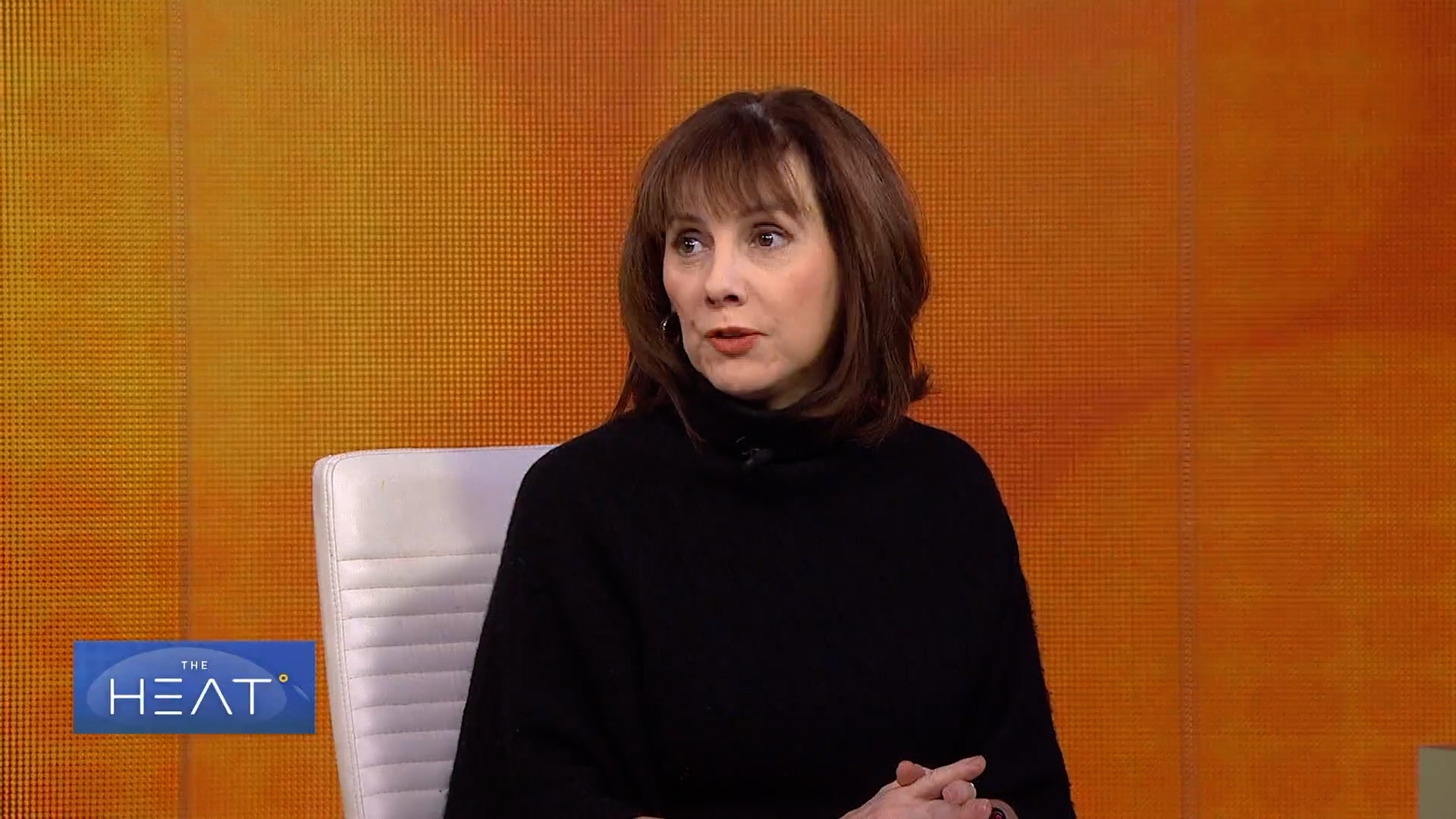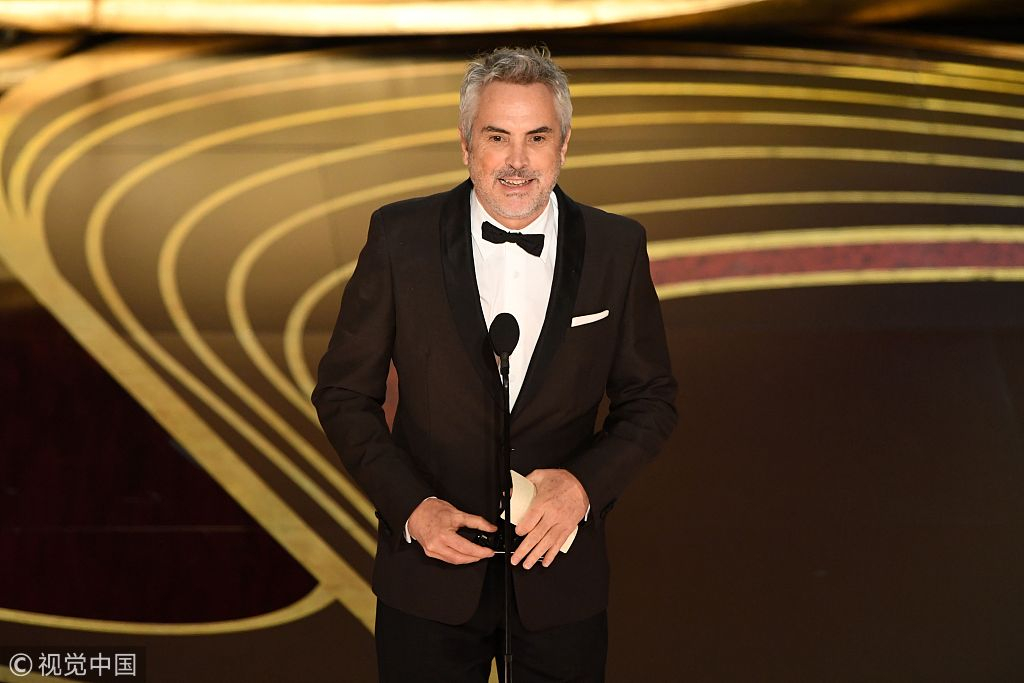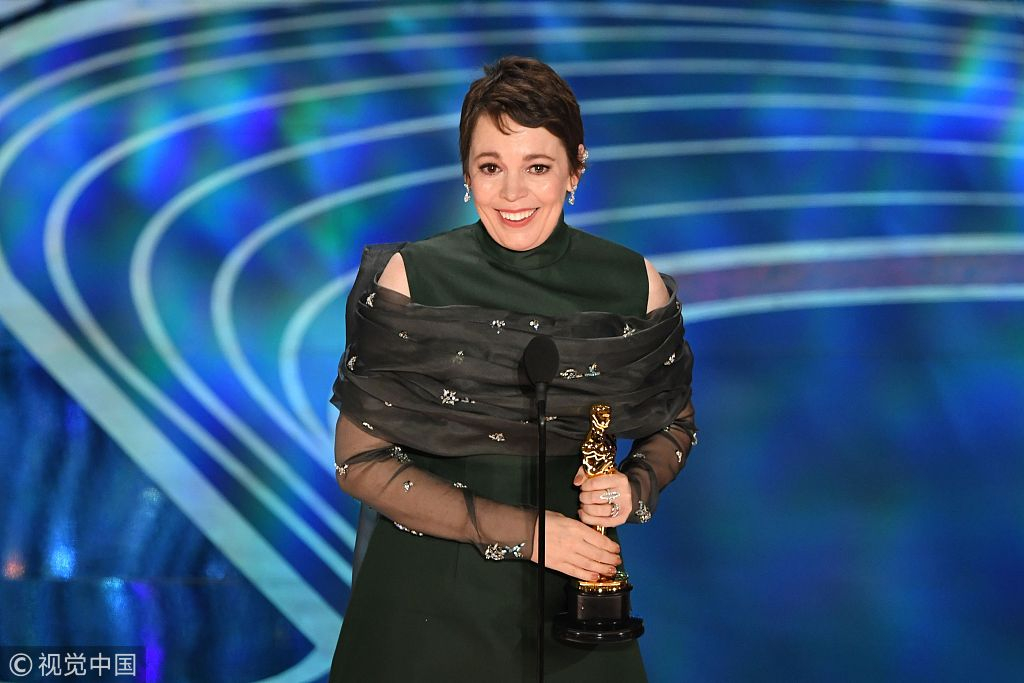
TV Show
11:23, 26-Feb-2019
The Heat: What makes Oscar controversial this year?
The Heat
01:21

The 91st Academy Awards ceremony was held at the Dolby Theatre in Hollywood on February 24. As usual, this year's Oscars drew global attention along with controversy. The first time, there was no host after comedian Kevin Hart stepped down and apologized for his old homophobic tweets. For the first time, a superhero movie, “Black Panther”, entered the Best Picture race.
CGTN's Mike Walter hosts the panel with guests from LA, New York, and Washington, DC, to discuss gender, diversity, and film platforms in Hollywood.
Noticeably, although many female directors emerged in 2018 with great works, women had been shut out from the best director nominations. Mexican filmmaker Alfonso Cuarón won the best director Oscar for Roma.
CGTN's May Lee reports that throughout the Academy Award's 91 years, only five women have been nominated. Kathryn Bigelow remains the only female winner of this award.
“Because gender politics, racial politics, and because women and people of color are marginalized in the entertainment industry, we just don't get recognized,” said filmmaker Renee Tajima-Pena.

Alfonso Cuaron accepts the award for Best Director during the 91st Annual Academy Awards at the Dolby Theatre in Hollywood, California, February 24, 2019. /VCG Photo
Alfonso Cuaron accepts the award for Best Director during the 91st Annual Academy Awards at the Dolby Theatre in Hollywood, California, February 24, 2019. /VCG Photo
“They need good movies, they need to give them opportunities,” Lee said. Regarding female appearances in Oscar, Jenelle Riley, who is the Deputy Awards and Features Editor at Variety magazine, indicates that all the eight nominated films are directed by men, and those directed by females just might not get the same chance.
Michael Tran, co-author of UCLA's Hollywood Diversity Report, said that diversity is still very much an issue in Hollywood both in film and TV. In TV, they found more sustained progress than in a film. Agreeing with Riley, Tran indicated that the lack of women directors starts at the production level.
The difference between film and TV is also related to the structures of the industries, said Tran. Since cable TV has more access to a wider audience, people are more likely to take a risk to showcase minorities and women, because they have more opportunities.
Big-screen movies are also found more frequently on more accessible platforms nowadays, especially Netflix. Recently, film director Steven Spielberg commented that if a movie is adapted to a TV format, then it cannot be judged at the Oscars.
Riley agreed that Netflix has become a big concern in Hollywood, whereas it has changed how people see movies nowadays. However, she indicated that many filmmakers had positive experiences working on Netflix without worrying about the box office or losing theaters.

Olivia Colman accepts the award for Best Actress during the 91st Annual Academy Awards, February 24, 2019. /VCG Photo
Olivia Colman accepts the award for Best Actress during the 91st Annual Academy Awards, February 24, 2019. /VCG Photo
“If Roma isn't a real film quote on quote, I honestly don't know what it is,” Riley said. This nominated movie had limited theatrical appearance but was streamed on Netflix. Riley observed that as times are changing, it is more expensive to go to see movies nowadays-Netflix has become the best bet for filmmakers to get their movies seen. Tran also added that digital platforms definitely do better in terms of highlighting the experiences of women and people of color and including those in the cast and crews.
Film historian Max Alvarez noted that home entertainment has made watching subtitled films less appealing, but Netflix has definitely opened doors to international cinema, and it would be fantastic if it can get people more conditioned to watching subtitled films. In his opinion, avenues for art such as Netflix are important for bringing more international productions, and people would not want them to disappear.
Anne pointed out that Netflix now has an office in Mexico City and has promised 40 or 50 productions in Mexico. “We've been talking about diversity as a moral imperative, but now we are seeing the numbers speaking by themselves,” she said.
The fact that Black Panther had such success and wide appeal proves that diversity and box office can coexist: it made a lot of money while conveying the social values of the black community. Therefore, an economic imperative can hopefully be seen in the future as well.
From doing Hollywood Diversity Report for over six years, Tran had explored the relationship between box office and level of diversity of the films, and he held that people have spoken very loudly and consistently that the movies best reflecting the diversity of the U.S. are the ones they are attracted most to.
The Heat with Anand Naidoo is a 30-minute political talk show on CGTN. It airs weekdays at 7:00 a.m. BJT and 6:00 p.m. Eastern in the United States.
(If you want to contribute and have specific expertise, please contact us at opinions@cgtn.com.)

SITEMAP
Copyright © 2018 CGTN. Beijing ICP prepared NO.16065310-3
Copyright © 2018 CGTN. Beijing ICP prepared NO.16065310-3